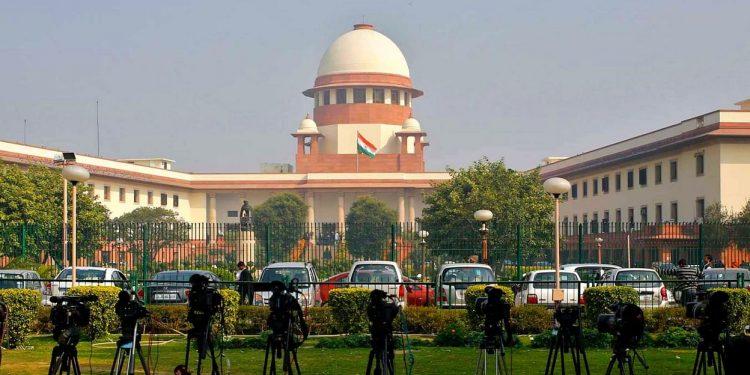Complete Absence of Motive Weighs in Favour of Accused: SC

Source: Bloomberg Quint.
NEW Delhi, Feb 27 (PTI) The complete absence of motive assumes a different complexion and definitely weighs in favour of the accused, the Supreme Court has said while acquitting a man sentenced to life imprisonment in a murder case of 1997.
A three-judge bench headed by Justice U U Lalit observed it is not that the case of prosecution must be discarded in the absence of motive.
The bench, also comprising Justices S R Bhat and P S Narasimha, set aside the judgement delivered in May 2014 by the High Court of Chhattisgarh which had dismissed an appeal filed by the accused against the trial court verdict convicting and awarding him life imprisonment in the case.
It is not as if motive alone becomes the crucial link in the case to be established by the prosecution and in its absence the case of prosecution must be discarded. But, at the same time, complete absence of motive assumes a different complexion and such absence definitely weighs in favour of the accused, the bench said in its February 25 verdict.
The Supreme Court delivered its judgement on an appeal against the high court verdict in the case.
According to the prosecution, a case was registered on a complaint by a man who had said that his son had gone to a paddy milling centre on January 13, 1997, and had since then been missing.
On January 17, 1997, body of the deceased was recovered from a pond and the case was converted to one under section 302 (murder) of the Indian Penal Code (IPC).
The Court noted in its verdict that the appellant, Nandu Singh, was arrested in the case and certain recoveries on the strength of his statement were stated to be made.
The counsel, who argued on behalf of the appellant before the Supreme Court, had said that in a case based on circumstantial evidence, the prosecution had not alleged any motive on his part to commit murder of the deceased.
The counsel had argued that the case was built by the prosecution based on the alleged evidence of last seen.
The bench noted that one of the prosecution witnesses had said in his statement that he had seen that the victim had gone with the appellant.
The Supreme Court observed that even after the deceased had gone missing, no suspicion was there against the appellant and his name surfaced only after the case was converted to section 302 of the IPC.
The circumstances on record do not make a complete chain to dispel any hypothesis of innocence of the appellant. The prosecution having failed to establish through clear, cogent and consistent evidence, the chain of events, on the basis of which the guilt of the appellant could be established, the courts below were not right in accepting the case of prosecution and convicting the appellant, it said.
We, therefore, accept the appeal; set aside the orders passed by the courts below and acquit the appellant of the charges levelled against him, the bench said.
Click here to read the Judgement.
Get the latest reports & analysis with people's perspective on Protests, movements & deep analytical videos, discussions of the current affairs in your Telegram app. Subscribe to NewsClick's Telegram channel & get Real-Time updates on stories, as they get published on our website.
























